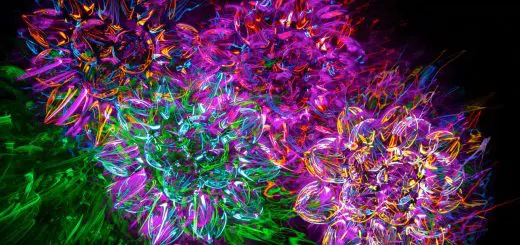Atman and Moksha: Liberation of the Soul

Looking for more amazing products? Check out our online store and explore our collection here! Happy shopping!
Before diving in, please note: This post is for informational purposes only. If you’d like to know more about how we approach topics, feel free to check out our friendly Disclaimer Page.
Hey there, amazing readers! 
We’re committed to delivering quality posts, and your support (even just sticking around despite the ads) means everything to us. So, bear with us, and thanks for helping us keep the good vibes rolling. Now, on to the fun stuff!
TRANSLATE BUTTON AT THE END OF THE ARTICLE
A Quick Overview
In Hindu philosophy, the concepts of Atman and Moksha are central to understanding the nature of the self and the ultimate goal of liberation.
Atman refers to the eternal soul or self, which is believed to be unchanging and indestructible.
Moksha, on the other hand, signifies liberation from the cycle of birth, death, and rebirth (samsara) and the attainment of true spiritual freedom.
In this article, we will delve deeper into the meanings of Atman and Moksha, the paths to achieving liberation, and the significance of self-realization in Hindu philosophy.
Understanding Atman: The Eternal Soul
Atman is the eternal and unchanging essence of the individual in Hindu philosophy.
It is considered to be the true self that transcends the physical body and mind.
The concept of Atman is closely linked to the belief in the interconnectedness of all living beings and the idea that every individual possesses a divine spark within them.
According to Hindu scriptures, Atman is eternal, immortal, and beyond the limitations of time and space.
The Concept of Moksha in Hinduism
Moksha is the ultimate goal in Hinduism, representing the liberation of the soul from the cycle of samsara.
It is often described as the state of eternal bliss, peace, and oneness with the divine.
Moksha is achieved through self-realization, spiritual enlightenment, and breaking free from the illusions of the material world.
It is believed to be the highest form of salvation and the culmination of one’s spiritual journey.
Paths to Liberation: Karma, Bhakti, Jnana
In Hinduism, there are three main paths to achieving Moksha: Karma Yoga, Bhakti Yoga, and Jnana Yoga.
Karma Yoga emphasizes selfless action and performing one’s duties without attachment to the results.
Bhakti Yoga focuses on devotion and surrender to a personal deity or higher power.
Jnana Yoga is the path of knowledge and self-inquiry, seeking to understand the true nature of the self and the universe.
Atman: The True Self Beyond the Body
Atman is often described as the true self that exists beyond the physical body and mind.
It is believed to be pure consciousness, untouched by the limitations and imperfections of the material world.
By realizing the true nature of Atman, individuals can transcend the cycle of birth and death and attain spiritual liberation.
Breaking the Cycle of Samsara
Samsara is the cycle of birth, death, and rebirth that all living beings are believed to be trapped in.
According to Hindu philosophy, the goal of spiritual practice is to break free from this cycle and attain Moksha.
By understanding the nature of Atman and realizing one’s true self, individuals can transcend the cycle of samsara and achieve liberation.
Importance of Self-Realization
Self-realization is a crucial aspect of achieving Moksha in Hindu philosophy.
It involves gaining a deep understanding of the true nature of the self and realizing one’s connection to the divine.
Through self-realization, individuals can overcome ignorance, attachment, and ego, and attain spiritual enlightenment.
Achieving Moksha: Ultimate Goal
Moksha is considered the ultimate goal of human life in Hinduism.
It is the state of liberation from the cycle of samsara and the attainment of spiritual freedom.
By realizing the true nature of Atman and breaking free from the illusions of the material world, individuals can achieve Moksha and experience eternal bliss.
Liberation from the Cycle of Rebirth
The concept of Moksha involves liberation from the cycle of rebirth and the end of the cycle of samsara.
It signifies the release from the cycle of suffering and the attainment of ultimate peace and enlightenment.
By achieving Moksha, individuals can break free from the bondage of karma and transcend the limitations of the material world.
Significance of Atman in Hindu Philosophy
Atman holds great significance in Hindu philosophy as the eternal and unchanging essence of the individual.
It is believed to be the true self that transcends the physical body and mind.
By realizing the divine essence within themselves, individuals can attain spiritual liberation and experience a profound sense of oneness with the universe.
Realizing the Divine Essence Within
Realizing the divine essence within oneself is a central aspect of achieving Moksha in Hindu philosophy.
It involves recognizing the eternal and unchanging nature of Atman and understanding one’s true connection to the divine.
By cultivating self-awareness, self-realization, and spiritual growth, individuals can unlock the power of the soul and experience profound inner transformation.
The Journey towards Spiritual Freedom
The journey towards spiritual freedom and liberation is a profound and transformative experience in Hindu philosophy.
It involves self-inquiry, self-realization, and spiritual practice to break free from the illusions of the material world and attain Moksha.
By following the path of self-discovery, individuals can overcome ignorance, attachment, and ego, and awaken to their true nature as divine beings.
Living a Life in Alignment with Atman
Living a life in alignment with Atman involves living with awareness, compassion, and mindfulness.
It means recognizing the divinity within oneself and all living beings and acting in harmony with the universal principles of dharma (righteousness) and karma (action).
By cultivating virtues such as love, kindness, and selflessness, individuals can align themselves with the true essence of Atman and experience spiritual fulfillment.
Conclusion
In conclusion, the concepts of Atman and Moksha are central to Hindu philosophy, representing the eternal soul and the ultimate goal of liberation.
By understanding the true nature of Atman, breaking free from the cycle of samsara, and achieving self-realization, individuals can attain Moksha and experience spiritual freedom.
Through self-inquiry, spiritual practice, and living a life in alignment with Atman, one can embark on a transformative journey towards spiritual enlightenment and liberation from the cycle of rebirth.
May we all strive to realize the divine essence within ourselves and embrace the path of self-discovery and self-transformation.

The Enlightenment Journey is a remarkable collection of writings authored by a distinguished group of experts in the fields of spirituality, new age, and esoteric knowledge.
This anthology features a diverse assembly of well-experienced authors who bring their profound insights and credible perspectives to the forefront.
Each contributor possesses a wealth of knowledge and wisdom, making them authorities in their respective domains.
Together, they offer readers a transformative journey into the realms of spiritual growth, self-discovery, and esoteric enlightenment.
The Enlightenment Journey is a testament to the collective expertise of these luminaries, providing readers with a rich tapestry of ideas and information to illuminate their spiritual path.
Our Diverse Expertise
While our primary focus is on spirituality and esotericism, we are equally passionate about exploring a wide range of other topics and niches 

To ensure we provide the most accurate and valuable insights, we collaborate with trusted experts in their respective domains 
Our blog originally focused on spirituality and metaphysics, but we’ve since expanded to cover a wide range of niches. Don’t worry—we continue to publish a lot of articles on spirituality! Frequently visit our blog to explore our diverse content and stay tuned for more insightful reads.
Hey there, amazing reader! 
Check out our store here and take a peek at some of our featured products below! Thanks for being awesome!










